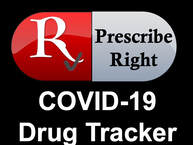|
COVID-19 Booster Vaccines
Pfizer and BioNTech announced that in a Phase 3 trial (NCT04955626) of over 10,000 patients, a booster dose of their COVID-19 vaccine demonstrated 95.6% effectiveness in preventing COVID-19. In an update to its COVID-19 vaccine guidance, the CDC is recommending that moderately and severely immunocompromised people aged 18 years or older, who completed an mRNA COVID-19 vaccine primary series, may receive a single COVID-19 booster dose (Pfizer-BioNTech, Moderna, or Janssen) at least 6 months after completing their third mRNA vaccine dose for a total of four COVID-19 vaccine doses. COVID-19 Vaccines An FDA review of data for the Pfizer-BioNTech COVID-19 vaccine in children ages 5-11 years, found benefits to outweigh the risks for this age group. In the study, children were given two 10 mcg doses of the vaccine, 21 days apart and found comparative antibody titers to levels seen in ages 16-25 with a 30 mcg dose. Adverse events were also similar. Based on limited follow-up, vaccine effectiveness was estimated to be 90.7% with no cases of severe COVID-19. The FDA’s Vaccines and Related Biological Products Advisory Committee (VRBPAC) voted 17-0 with one member abstaining to recommend the Pfizer-BioNTech COVID-19 vaccine in children 5-11 years of age. A CDC analysis of data from 464 adolescents, hospitalized for COVID-19, found the Pfizer-BioNTech COVID-19 vaccine to be 93% effective in preventing hospitalizations from 6/1/2021 to 9/30/2021, a period when the predominant variant was the Delta variant. Moderna announced interim data from a cohort of 4,753 children, age 6 to under 12 years of age, enrolled in the Phase II/III KidCOVE trial(NCT04796896), where two 50 mcg doses of Moderna’s COVID-19 vaccine, given 28-days apart, elicited a strong immune response and was well tolerated. A retrospective analysis of 2.5 million patients, in an Israeli HMO database, who received the Pfizer-BioNTech COVID-19 vaccine found the estimated incidence of myocarditis to be 2.13 cases per 100,000 persons with the highest incidence in male patients between the ages of 16 and 29 years (10.69 cases per 100,000). In a similar study from a national database of 5.1 million Israelis that received the Pfizer-BioNTech COVID-19 vaccine, the estimated incidence of myocarditis was 1.76 cases per 100,000 persons with the highest incidence in male patients ages 16 to 19 years (13.73 cases per 100,000). An analysis of the response to vaccination with mRNA vaccines found that pregnant and lactating women develop lower antibody titers after the first vaccine dose. Antibody levels rise to match the immunological response seen in non-pregnant and non-lactating women after the second dose. COVID-19 Antivirals Roche and Atea Pharmaceuticals announced that in the seven-day, 100 patient, Phase II, MOONSONG Trial (NCT04709835), treatment with AT-527 did not reduce viral load compared to placebo in non-hospitalized patients with mild to moderate COVID-19. MOONSONG included vaccinated patients, which could have affected the outcome. The Oregon Poison Center reported an increase in calls for toxic effects of ivermectin. The drug was being taken to treat or prevent COVID-19. Most of the patients were treating themselves using a veterinary formulation. Some of the patients were taking a dose much higher than the 21 mg used in humans. Six of the patients were hospitalized and four admitted to the ICU. In the 28-day, 1,497 patient, Brazilian Phase III, TOGETHER trial (NCT04727424), 11% of patients treated with fluvoxamine required prolonged emergency treatment or were admitted to a hospital for worsening COVID-19 compared to 16% with placebo in outpatients with COVID-19 at high risk to progress to severe disease. COVID-19 Anti-Inflammatories In the 28-day, 982 patient, Phase III, COVID STEROID trial (NCT04509973), treatment with IV dexamethasone 12 mg did not increase days alive without life support compared to a 6 mg dose (22 vs 20.5 days) in patients with COVID-19 and severe hypoxemia. COVID-19 Antibodies Interim data from the 29-day, 583 patient, Phase III, COMET-ICE trial (NCT04545060), found that 1% of patients treated with VIR-7831 were hospitalization or death compared to 7% with placebo in patients with mild to moderate COVID-19 who are at high risk of progression to severe disease. Comments are closed.
|
Stay informed, subscribe to the Prescribe Right Pharmaceutical Pipeline Tracker
Archives
January 2023
Categories |
Services |
Company |
Support |
© COPYRIGHT 2015. ALL RIGHTS RESERVED.
|


 RSS Feed
RSS Feed